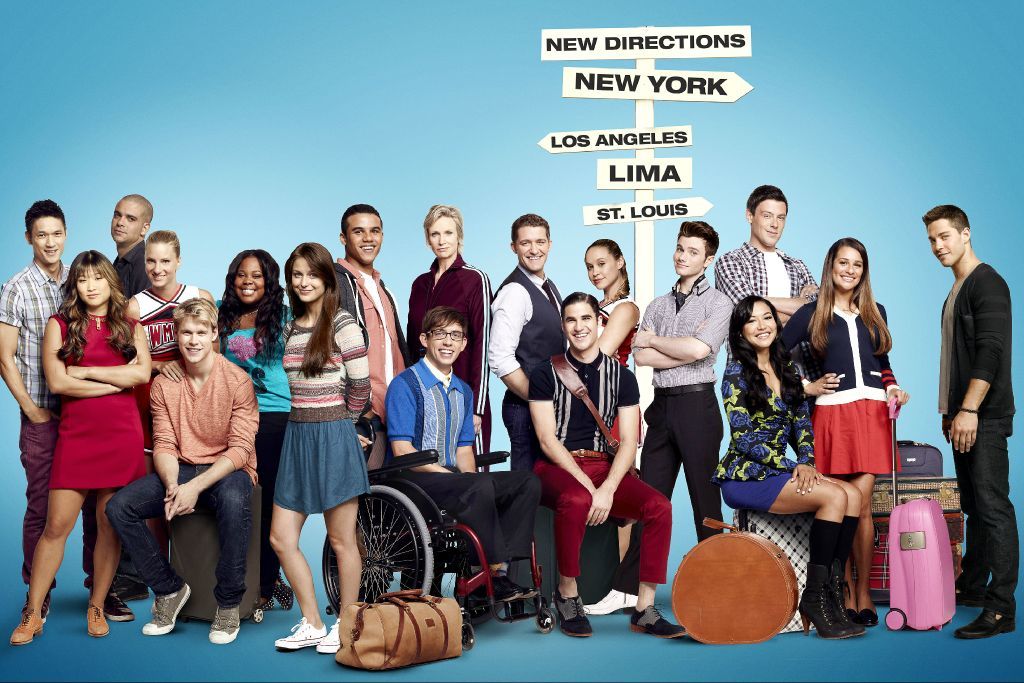Should a non disabled person play a disabled one?
Simón Bolívar
Chorus Member Joined: 6/3/18
#2Should a non disabled person play a disabled one?
Posted: 9/17/18 at 11:57amIs it a trans disabled person?
#3Should a non disabled person play a disabled one?
Posted: 9/17/18 at 12:39pm
Jordan Catalano said: "Is it a trans disabled person?"
Thanks Jordan. I needed a good laugh. :)
#4Should a non disabled person play a disabled one?
Posted: 9/17/18 at 12:54pm
I think there is no way to make a blanket statement. I'm sure OFTEN you could find the right disabled person, but not always. And should they only get the part BECAUSE they are disabled?
#5Should a non disabled person play a disabled one?
Posted: 9/17/18 at 1:16pm
Only if they want an Oscar.
UncleCharlie
Broadway Legend Joined: 6/26/16
#6Should a non disabled person play a disabled one?
Posted: 9/17/18 at 1:55pm
I saw Bradley Cooper play the Elephant Man a few years ago and was so disappointed they didn't hire an actor with those actual deformities. I saw the show and waited outside to tell Cooper how wrong it was. He came out and just as I was about to tell him, he grabbed my playbill, signed it, handed it back to me and walked away before I could utter a word. So rude!
#7Should a non disabled person play a disabled one?
Posted: 9/17/18 at 8:44pm
My favorite protest of something like this is when people railed against Avatar for not casting a disabled actor to play the role of the paralyzed Marine in the wheelchair, completely skipping over the fact that when he was in the Avatar world, he was running around the whole time. Clearly, they understand how filming works and that the actor had to played both parts... no?
Sugar78
Swing Joined: 2/9/12
#8Should a non disabled person play a disabled one?
Posted: 9/17/18 at 10:07pmI think more of an effort should be made to incorporate people with disabilities into the creative process at any level. That doesn't always mean that the actor has to be disabled to play the role, and certainly there are times when that's not practical (the character is at some point not disabled, they need a super star, etc.). But there are other stories to tell that don't have those constraints. Disability is not always the dramatic loss that entertainment seems to gravitate towards. Another thing that we need more of are disabled actors playing roles where their disability status is not their sole purpose in the role. That's reality. A disability is just 1 aspect of a person's identity, but far too often it's portrayed as all we are. Entertainment tends to advance some pretty ignorant and harmful myths and stereotypes about disabilities, which is why I think it's important to have people with lived experience involved in the process on some level. I have paraplegia from a congenital spine condition and use a wheelchair, and the general public has some really messed up ideas about what my life is like and what I can/can't do, and I'd like to see more portrayals that challenge those misconceptions (the way they do for other minority groups) rather than allow them to fester. That's not to say they can't portray challenges, but many of the true challenges we encounter are far different than those the currently non-disabled assume. But let's deal with those authentic experiences rather than jumping to the tired overused storylines that do us harm. I'd love to never see another plot where they literally pull the plug on someone with a disability because the assumption of non-disabled creatives is that our lives aren't worth living.
#9Should a non disabled person play a disabled one?
Posted: 9/18/18 at 1:30pm
Do you have any examples of this from any recent works? I feel the idea of pulling the plug is when the patient is brain dead and therefore cannot survive without the machines. I can't think of any story that just wantonly ends someone's life for a disability. (Not saying it doesnt exist, which is why I've asked for examples.)
#10Should a non disabled person play a disabled one?
Posted: 9/19/18 at 12:01pm
Yes i think so. It's a way to show their acting skills
#11Should a non disabled person play a disabled one?
Posted: 9/19/18 at 10:35pm
Jordan Catalano said: "Is it a trans disabled person?"
You kid, but this is a thing. I saw it years ago on some National Geographic special, I think. Some people will simply wear a cast or brace or use a wheelchair they don’t need; others will attempt to find surgeons who will amputate perfectly functioning limbs......
But anyway, in general I don’t theres anything *wrong* with an able bodied person playing a disabled person, but we must begin including more disabled people in the stories we tell. Representation is good for all of us.
BPfan81
Understudy Joined: 4/12/18
#12Should a non disabled person play a disabled one?
Posted: 9/20/18 at 12:02am
Well, my question is, are you referring to a particular disability, or generally speaking? Truth is, how many 'disabled' people are given a chance in this profession where 'everything' is based on 'looks?' Are you referring to wheel-chaired bound disabilities, for example, people with cerebral palsy or without limbs? My point is, I would assume it is much more difficult for them to find work as a result, and therefore, not many have succeeded in this field of work. Can you name a handful of roles actually played by disabled people? So I wouldn't be surprised if a non-disabled person is always cast in disabled roles.
BPfan81
Understudy Joined: 4/12/18
#13Should a non disabled person play a disabled one?
Posted: 9/20/18 at 12:02am
Well, my question is, are you referring to a particular disability, or generally speaking? Truth is, how many 'disabled' people are given a chance in this profession where 'everything' is based on 'looks?' Are you referring to wheel-chaired bound disabilities, for example, people with cerebral palsy or without limbs? My point is, I would assume it is much more difficult for them to find work as a result, and therefore, not many have succeeded in this field of work. Can you name a handful of roles actually played by disabled people? So I wouldn't be surprised if a non-disabled person is always cast in disabled roles.
robskynyc
Broadway Star Joined: 4/17/18
#14Should a non disabled person play a disabled one?
Posted: 9/20/18 at 3:06pm
Jordan Catalano said: "Is it a trans disabled person?"
aaaaand I’m dead
#15Should a non disabled person play a disabled one?
Posted: 9/20/18 at 4:07pm
Hard to direct a person with severe Autism (I know I have). You can get them to hit a mark and dance (if they are into the music). Other then that, no. Same thing with people with profound intellectual disorders. "Disabled" encompasses a broad spectrum.
Broadway Legend Joined: 12/31/69
#16Should a non disabled person play a disabled one?
Posted: 10/11/18 at 4:22am
For the purpose of authenticity, or simply because you feel that the person with the deformity deserves it? If it's for the purpose of authenticity, then an actor that's not athletic shouldn't play an athlete, a person with poor communication abilities shouldn't play an extrovert, and a person with no inherently violent temperament should play a psychopath.
This is my john hancock
I'm a photog over at Joe Jenkins Event Photography. Thanks for listening.
wonkit
Broadway Legend Joined: 9/30/08
#17Should a non disabled person play a disabled one?
Posted: 10/11/18 at 3:28pm
I believe that it is customary to have a non-deformed actor play the Elephant Man. I seriously doubt that anyone with physical deformities like that character is in the acting profession.
I have a very good friend who is paralyzed from the waist down and in a wheelchair. He is in his late fifties, very handsome, and an excellent actor. He has done TV and films but not live theater. I just don't know enough about major theaters to know if they are set up to provide the required accommodation for someone who is disabled. I am sure they should be but I don't know if that factors in to the discussion.
Platypus
Featured Actor Joined: 11/13/07
#18Should a non disabled person play a disabled one?
Posted: 10/11/18 at 10:08pm
dramamama611 said: "Do you have any examples of this from any recent works? I feel the idea of pulling the plug is when the patient is brain dead and therefore cannot survive without the machines. I can't think of any story that just wantonly ends someone's life for a disability. (Not saying it doesnt exist, which is why I've asked for examples.)"
Me Before You (2016 -https://m.imdb.com/title/tt2674426/) is a recent example. On the surface it's a tear jerker love story. But it's about a man who becomes quadriplegic from an accident and chooses medical assistance in dying. There was a lot of criticism that the message of the film was that life is not worth living if you are disabled.
Paterson
Stand-by Joined: 10/4/08
#19Should a non disabled person play a disabled one?
Posted: 10/24/18 at 5:53pm
Some really interesting points Sugar78 and wonkit. I'd caveat everything by saying "it depends", and that there are two main perspectives on this:
The first is audience orientated and is simply representation in story-telling, which is important to everyone, and especially minority groups, and that comes from having writers and other creatives who are aware of, and preferably have a good understanding of life for the relevant group. Realistically, that means people with the relevant lived experience, but practically, it could be an experienced writer putting the effort into really good research and getting the right people involved.
The second is actor orientated, and asks whether or not actors from minority groups, including those with disabilities, are getting a fair deal and the same opportunities as their able-bodied counter-parts. I'd argue that if the character is a wheelchair user for the duration of the story, then there probably are enough actors who routinely use wheelchairs to try to find one that's capable of the part before widening the net to include able-bodied actors pretending. I'd also argue that it can be quite hard to pretend to be a wheelchair user if you've not lived it for a period of time. On the other hand, many stories involving disability include changes to the level of disability. The story of Stephen Hawking required an actor who could be able bodied at the start of the film, then degenerate as the years passed.
A problem is that the desire by producers to use the biggest name they can convince to take part that's capable of a role gives the more experienced able-bodied actors a head start, and if your priority is for the general public to see these stories, then you'll be happy to see a big star like The Rock in a big budget film playing a man with a prosthetic, rather than the indie equivalent with an unknown.
An interesting point is how many roles really need the character to be able-bodied? Could minor adjustments make the part suitable for an actor with a disability? There's been a trend recently to even up gender balance in film-making, so when translating male dominated books to the screen, questions are asked about whether any of the characters could be replaced by a female equivalent. Sometimes it's a straight swap, but you can often maintain the integrity of the plot with a few adjustments to make your new female character realistic. I don't see why you couldn't do the equivalent to create more roles for disabled actors. By that I mean that there may be times when the disability is entirely irrelevant and doesn't get a mention, but realistically that sort of thing would be mentioned every now and then, so it doesn't need to be ignored when creating a character who happens to have a disability.
The example of a gender switch that's coming to my mind was the TV adaptation of The Night Manager from a couple of years ago. The character played by Olivia Coleman was originally written as a man in the books. There was no reason why that character had to be a man, so they switched it, and Olivia was pregnant at the time, so they made that a feature of her character with appropriate references.






